Forget everything you know about the United States of America. It is not united anymore, but divided into several independent nations. No, this isn’t the result of a divisive election.
What would this mean for the Indigenous populations that already lived there? Could they have become a global superpower? And how would this impact the development of Europe?
In school, most of us are taught that Christopher Columbus discovered America in 1492. But in reality, there is evidence that the Vikings and the Polynesians were there hundreds of years before.
And most importantly, we can’t really say he “discovered” anything when there were already millions of people living there. But Columbus arriving in America did spark massive amounts of exploration and colonization that led to the world as we know it. So if he never arrived in America, would colonization still have happened?
Before we go too far down the alternate history route, let’s set a few real historical facts straight. First off, before Columbus arrived, the Americas were not just sparsely populated wildlands with tribes wandering through them.
Instead, there were actually more people in the Americas living in complex and highly organized societies, than there were in Europe.
All of the communities had rich and mature cultures, and established languages. There is even some evidence that the Indigenous populations of North and South America occupied the region for around 20,000 years before Columbus arrived.
Since time immemorial, they had diversified so greatly in terms of culture that they spoke approximately 300 different languages. But that all changed when Columbus and the European colonizers arrived.
A study from England’s University College London found that the European colonization of the Americas indirectly contributed to the deaths of about 56 million people by the year 1600. The study attributes the deaths to factors including introduced disease, such as smallpox and measles, as well as warfare and societal collapse.
If the Americas had never been colonized by the Europeans, not only would many lives have been saved, but also various cultures and languages. Through colonization, the Indigenous populations were labeled as Indians, they were enslaved, and they were forced to abandon their own cultures and convert to Christianity.
If it weren’t for this oppression, the Indigenous nations would have continued to develop and progress. Modern-day California would be the most densely populated region, but the entire continent would be divided into different nations, much like Europe and Asia.
Smaller tribes would get swallowed up by larger ones and borders would continue to change throughout history. But one group that may have emerged as a dominant culture over the others would be the Iroquois.
They were known as one of the strongest nations due to their successful agricultural practices, and their ability to invade other nations. If Columbus hadn’t brought colonization over to the Americas, then the Iroquois would probably have continued to grow their nation and surround much of the Great Lakes area and the Mississippi River.
And our geographical borders wouldn’t be the only things that would look different in this alternate timeline, our diets would too. Wheat would not have been a staple in the American continents, as this is something introduced from Europe. And American foods like corn, tomatoes, and potatoes would not have been introduced to the Europeans.
But in all honesty, even if Christopher Columbus didn’t sail the ocean blue, America would have likely still been invaded. The Age of Exploration, beginning in 1450, had many nations looking for new lands to conquer and goods to exploit. So eventually, someone would have stumbled upon it.
Nowadays, the only new worlds yet to be discovered are in outer space. If we find one we can live on, let’s take a lesson from our history on Earth.
Sources
- “Christopher Columbus” 2020. history.com.
- “Why Columbus Day Courts Controversy”. 2020. HISTORY.
- “A New History Of The First Peoples In The Americas”. Rutherford, Adam. 2017. The Atlantic.
- “‘1491’ Explores the Americas Before Columbus”. 2020. npr.org.
- “What Would Have Happened If Christopher Columbus Missed The Americas?”. Carlton, Genevieve. 2020. Ranker.
- “Explore The World And America Before Columbus”. 2019. The Great Courses Daily.
- “European colonization of Americas killed so many it cooled Earth’s climate”. Milman, Oliver. 2019. The Guardian.












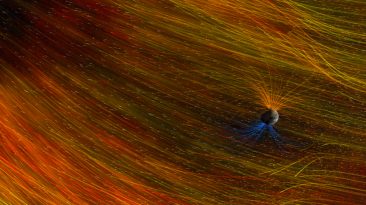





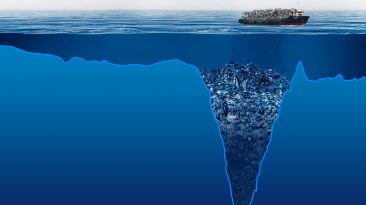
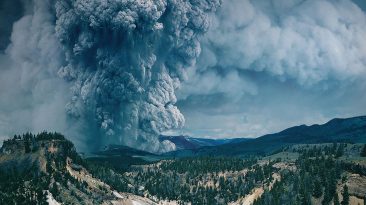
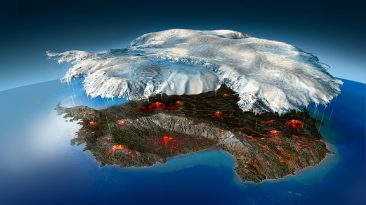





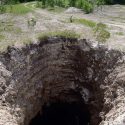

The fate of indigenous populations in North America was sealed regardless of which “outsiders” settled and colonized the continent. North America was unconnected with the rest of humanity for thousands of years. Any new visitors from Europe, Asia, Africa, etc. had all been exposed to the same diseases that had ravaged their populations centuries before and were bringing them along for the ride. There was no immunity and simple illnesses were devastating. Add in the advantages of technology (horses, gunpowder, etc.) and an endless stream of new settlers, the indigenous population stood little chance of survival and narrowly avoided extinction.… Read more »
Yet again we wouldn’t have the shit we have now if it wasn’t for him
Without they being descovered “Americans” wouldn’t be very different now from what they were in 1400. But how were they then ? Sacrificially religious and canibalistically warmongering? — or: good-natured, ecologically-friendly dwellers of original & relatively humane statehoods? I am not sure we can really tell.